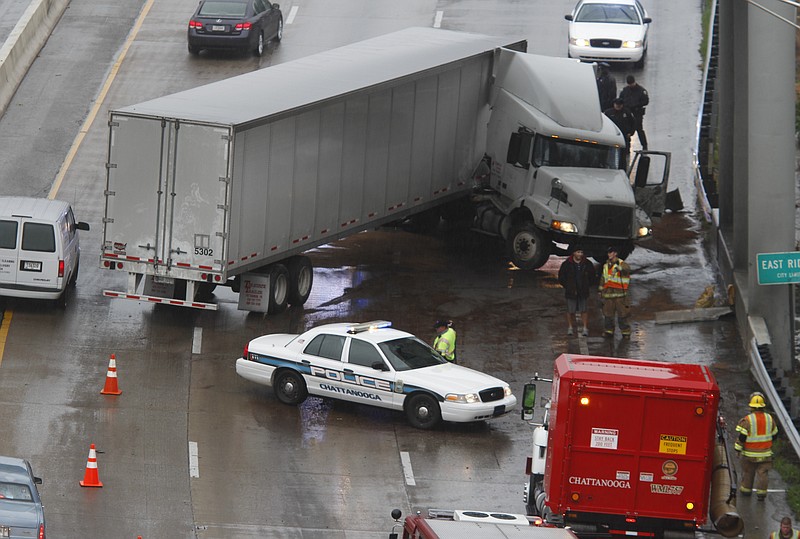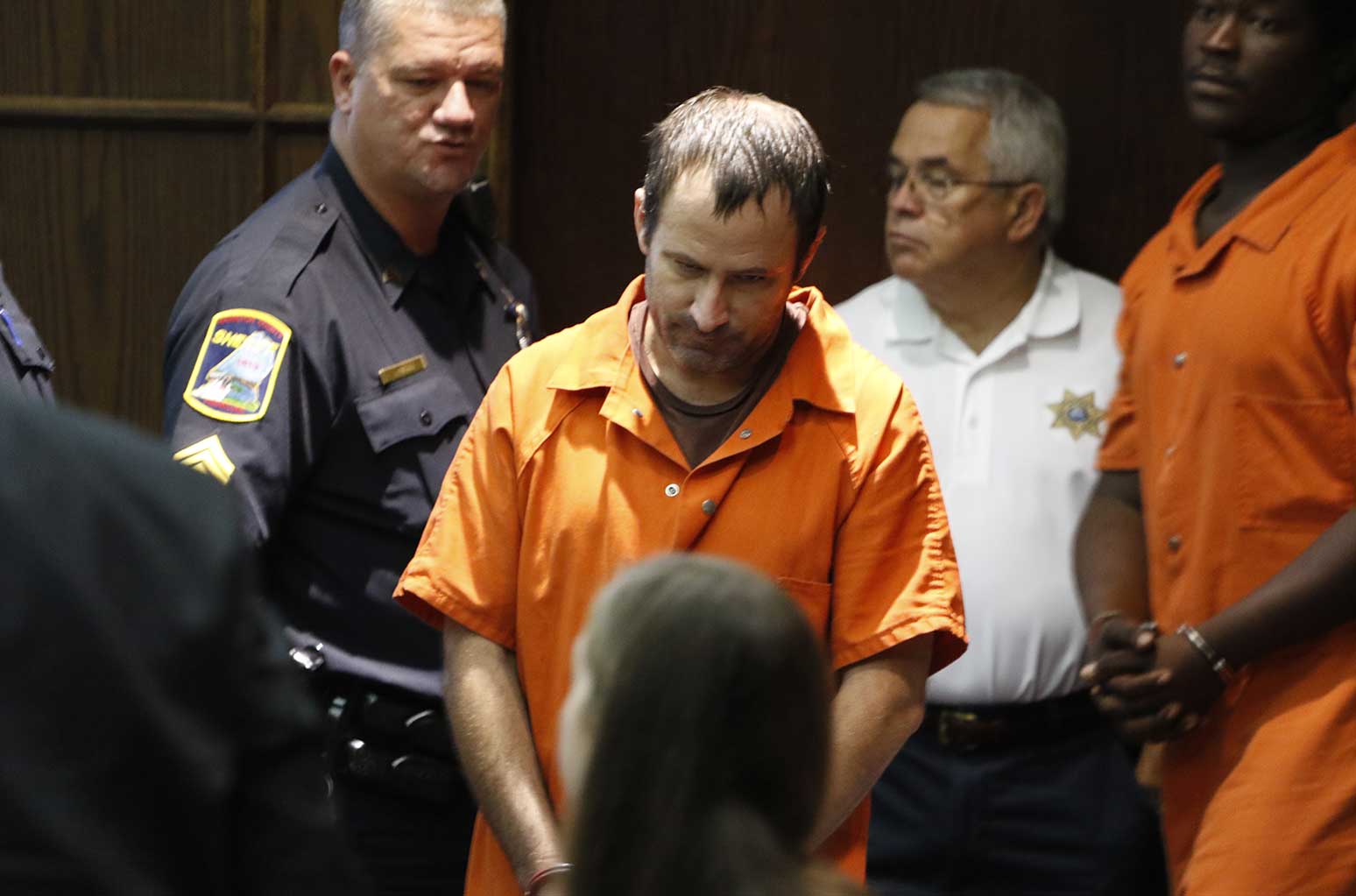If you ordered something for Christmas last week and paid for one- or two-day shipping, the item likely arrived on time and made someone happy.
Somewhere along the line, a tractor-trailer truck was probably involved.
As Americans order more and more items online and select (and pay for) faster shipping, the pressure increases for trucks to make sure those items arrive on time.
In all, some 10 billion tons of goods travel annually from state to state.
Those trucked deliveries are not made easier by more commuter traffic on the roads, lack of infrastructure improvements, balky technology updates and insufficient diversity of transportation, according to a Times Free Press investigative series by reporters Shelly Bradbury and Alex Green.
When you add speeding, drugs and lack of personal responsibility to the above headaches, you wind up with the accident that took the lives of six people near the Ooltewah exit on Interstate 75 last June.
In fact, more than 48,000 people have died in tractor-trailer accidents across the country in 10 years.
But the demand for goods is not going to wane and the infrastructure improvements will occur only in drips and drabs, so diversifying transportation and improving technology will be important going forward.
So will local enforcement in and around Chattanooga, where more truck traffic passes - with the convergence of Interstates 75, 24 and 59 - than any other metro area in the United States and which is home to two of the top 25 truckload carrier companies in the country.
The Ridge Cut bottleneck is just one area where law enforcement - the Chattanooga Police Department and the Tennessee Highway Patrol among others - could make a difference. Until recently, a sign on the western side of Missionary Ridge mandated that tractor-trailer trucks must be in the two right-hand lanes, leaving the left-hand lane for faster automobile traffic.
For whatever reason, that sign is no longer up, and trucks have begun using all three lanes climbing the ridge, clogging traffic and causing cars to abruptly change lanes to find a faster route. Ticketing violators there as well as in work zones and on open stretches might slow down trucks going through the city.
But most truckers are just doing their jobs, doing their best to deliver freight from here to there. Because if they aren't moving, they're not making money, which, in turn, affects the entire supply chain and, thus, the economy as a whole.
Improved technology is one area that could make those jobs safer.
Already, some trucks are outfitted with alerts that monitor lane drifts, fatigue, collision hazards and time of service. But companies say many of the alerts still have bugs to be worked out. Continued work in that area is bound to perfect the monitoring systems, though.
And large fleet companies are willing to spring for the devices since fewer accidents make for less down time, more goods delivered and a more profitable bottom line.
Diversifying transportation also will help the situation. Currently, 70 percent of freight is delivered by trucks, 13 percent by rail, 11 percent through pipelines and 6 percent by air. If it's profitable enough, more could easily be delivered by rail due to the country's vast existing railroad network.
Commercial trucking firms also say they're willing to do their part by accepting higher diesel taxes to improve the roads themselves, but Congress continues to kick the can down the road - as former Chattanooga Mayor and current Tennessee Sen. Bob Corker likes to say - in funding roads.
Congress passed two highway bills earlier this year, but neither is fully paid for and neither gets close to the amounts that will address the country's actual infrastructure needs.
Last year, Congress finally listened to barge owners who had been saying the same thing about funding. They said they were willing to pay higher diesel fuel taxes in order to improve inland waterway projects - like the new lock for Chickamauga Dam - to make it easier and faster for their loads to move. A bill with pushes from Tennessee Sen. Lamar Alexander and U.S. Rep. Chuck Fleischmann did just that.
Chattanooga is fortunate to have large and responsible trucking firms in its portfolio of employers, but the local employers - just as the Kentucky company for which the man charged in the Ooltewah accident worked - are composed of individuals. And individuals are fallible.
Governments and the trucking firms have roles to play in creating a safer highway and a smoother transit of goods, but the people who get behind the wheel of vehicles weighing up to 80,000 pounds must pledge equal fealty to their responsibility. Without that, better technology, diversified transportation, infrastructure improvements and less personal vehicle use will mean little.

